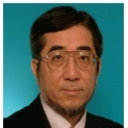Thyroid hormones, their carrier proteins, and thyroid antibodies in the pleural effusion of two patients with graves' disease-induced thyrotoxicosis.
Nyckelord
Abstrakt
BACKGROUND
Concentrations of thyroid hormones, their carrier proteins, and thyroid antibodies in plasma have been extensively investigated, but those in pleural effusion have not. PATIENTS AND MEDTHODS: In the present study, we report, for the first time, the concentrations of thyroid hormones, their carrier proteins, and thyroid antibodies in the pleural effusion of two thyrotoxicosis patients with Graves' disease.
RESULTS
The pleural effusions were transudates. The concentrations of thyroid hormone carrier proteins, such as thyroxine-binding globulin (TBG), thyroxine-binding prealbumin (TBPA), and albumin (Alb) were approximately 30-50% of the plasma. The concentrations of total triiodothyronine (TT3), total tetraiodothyronine (TT4), free triiodothyronine (FT3), and free tetraiodothyronine (FT4) were approximately 15-40%, 45-55%, 45-75%, and 80-85% of the plasma, respectively. The concentration of thyroid stimulating hormone receptor antibody (TRAb) (equal to TSH-binding inhibitory immunoglobulins%; TBII%) was approximately 90% of the plasma.
CONCLUSIONS
If the pleural effusions were treated with diuretics, substantial quantity of thyroid hormones and thyroid antibodies in the pleural effusion may have returned to the plasma, and might exacerbate thyrotoxicosis. For patients with thyrotoxicosis and pleural effusion, thoracentesis should be considered. The present findings will contribute to the understanding and treatment of hyperthyroidism-induced pleural effusion.


